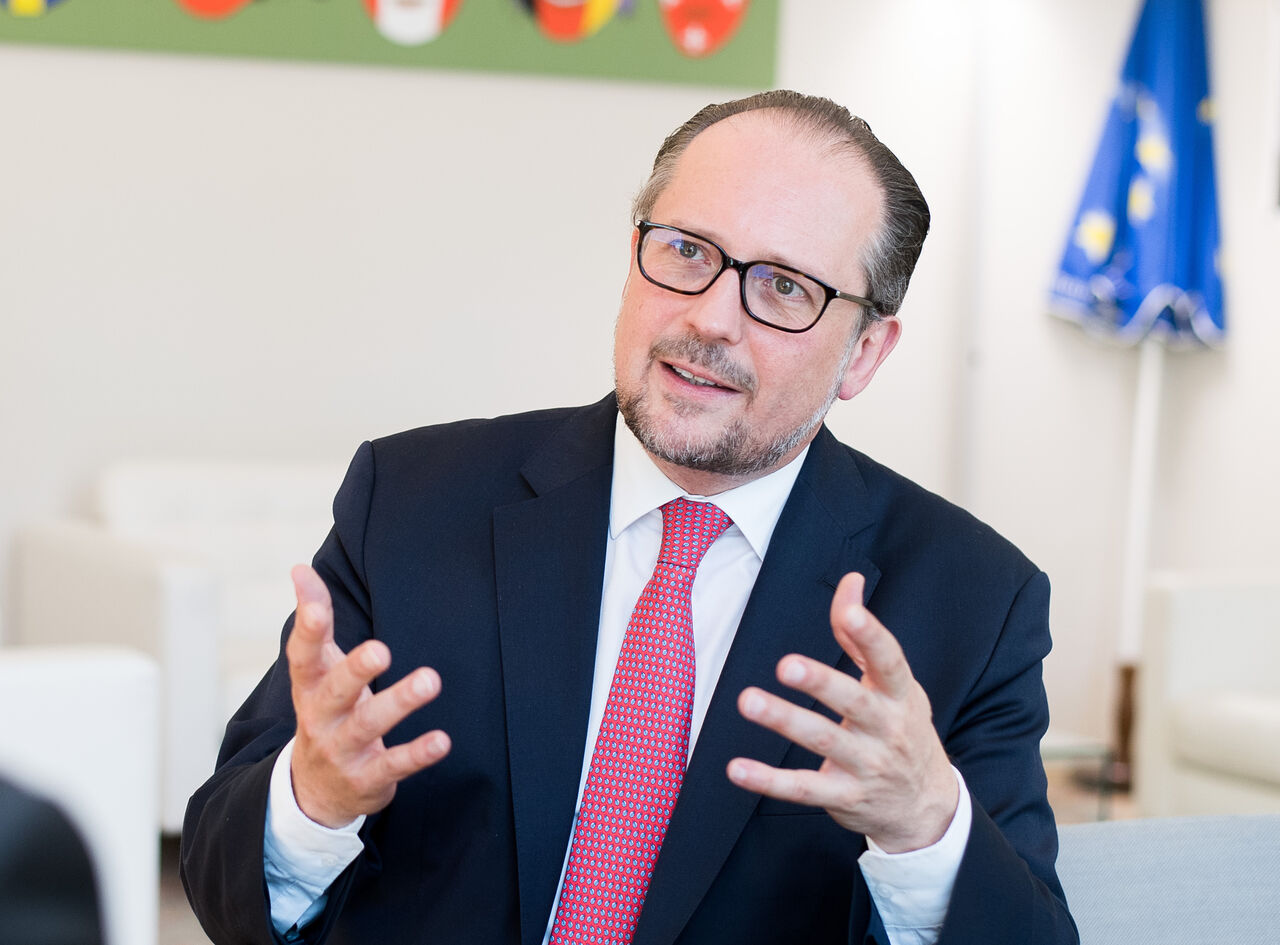ID :
584968
Sat, 12/12/2020 - 23:32
Auther :
Shortlink :
https://oananews.org//node/584968
The shortlink copeid
Austrian FM urges all JCPOA parties to keep promises

London, Dec 12, IRNA – Austrian Foreign Minister Alexander Schallenberg said that Austria will not stop calling on all parties to 2015 Iran nuclear deal – known as JCPOA – to return to its full implementation.
Schallenberg made the remarks in an exclusive interview with IRNA correspondent on Saturday.
He said that “Austria will certainly do its part by facilitating any talks if the sides wish so”.
The full text of the interview follows:
Q. How do you asses the current bilateral relationship between Iran and Austria?
A. We can be proud of 160 years of stable and friendly diplomatic relations. It is our firm intention to continue this tradition.
Q. In which areas could the two sides expand their cooperation? Do you have any plans for the future?
A. Definitely in humanitarian and medical issues and in urban infrastructure. We have seen that COVID-19 affects everyone, at the same time. It is in our joint interest to be prepared for the next pandemic or other humanitarian catastrophe. We would also like to strengthen our cultural cooperation. Both our countries are rightly proud of their strong cultural heritage. Austria runs the only Western cultural institute in Iran. In order to deepen our cooperation in these and other areas, we will use the solid framework of our bilateral Road Map.
Q. Austria has played an important role to preserve the Iran nuclear deal (JCPOA) over the last 3 years by hosting meetings between the remaining parties to the deal. Were you under any kind of pressure from the US for your role?
A. The answer is very simple: No.
Q. How important is the JCPOA from Austria point of view?
A. The JCPOA was negotiated in Vienna and endorsed by UNSC. We feel a strong sense of ownership, even if we are not party to the deal. It marks a high-point of the multilateral system and can be seen as proof of what can be achieved if all sides sit at one table and negotiate in good faith. Austria remains committed to the JCPOA. We will not stop calling on all sides to return to its full implementation.
Q. The new US president Joe Biden has vowed to return back to the JCPOA and to lift sanctions against Iran, however he called this difficult. What is your assessment and how soon will developments unfold regarding this matter?
A. It is difficult to make predictions. But there are indications that all sides seem to be willing to engage in a process again. This is encouraging. Austria will certainly do its part by facilitating any talks if the sides so wish.
Q. Iran has stepped back from its commitment under the JCPOA claiming that it has not economically benefitted from the deal. The E3 have therefore warned Iran about the consequences of scaling back from its commitment without any reference to the lack of JCPOA benefits to Iran. At the same time, HRVP Josep Borrel recognizes that Iran’s deal has two sides and that Iran has not been able to benefit from the deal. What is Austria’s position?
A. All sides need to keep up their commitments under the JCPOA. We welcome the cooperation of Iran with the IAEA under the JCPOA. But we are concerned by violations of the agreement. This regards nuclear research, the accumulation of low enriched uranium, and the installation of centrifuges. These developments need to be reversed. We worry that a less for less approach will only lead to a negative spiral that no one wants.
Q. Your German counterpart last week called for a broader deal with Iran, claiming that the JCPOA is not enough. However Iran’s foreign ministry’s spokesperson indicated that the accord has already been negotiated, signed and endorsed by UN Security Council Resolution 2231. He said that Iran will not renegotiate something that has already been negotiated, he added. What is Austria’s assessment and position on this?
A. We welcome all attempts by JCPOA participants to find a diplomatic way forward.
Q. Representatives of the remaining parties to the JCPOA will meet in Vienna next week and there is also a chance for a ministerial meeting before Christmas. Tell us about your expectation from the European parties in this meeting?
A. These ongoing discussions to preserve the JCPOA are essential, including in preparation of possible exchanges at ministerial level. We are all still in the midst of the pandemic, being forced to deal with lockdown measures and travel restrictions. Because of all of this, it is more important than ever to keep all channels of communication open.
Q. What is your assessment of the assassination of Iran's prominent nuclear scientist Dr. Mohsen Fakhrizadeh? What could be the objectives of the culprits and will your country condemn this act?
A. The incident shows that it is more important than ever that all sides remain calm and exercise maximum restraint. Escalation cannot be in anyone’s interest.
Q. Tell us about your last trip experience to Iran. How did you find our country in general and also from cultural point of view?
A. I was the last Western Foreign Minister on the eve of the COVID-19 outbreak to enjoy your hospitality and hold constructive talks with President Hassan Rouhani and Foreign Minister Mohammad Javad Zarif. Unfortunately, due to my dense program, there was barely time to admire the rich cultural heritage of Iran. One more reason for me to return in the future.





